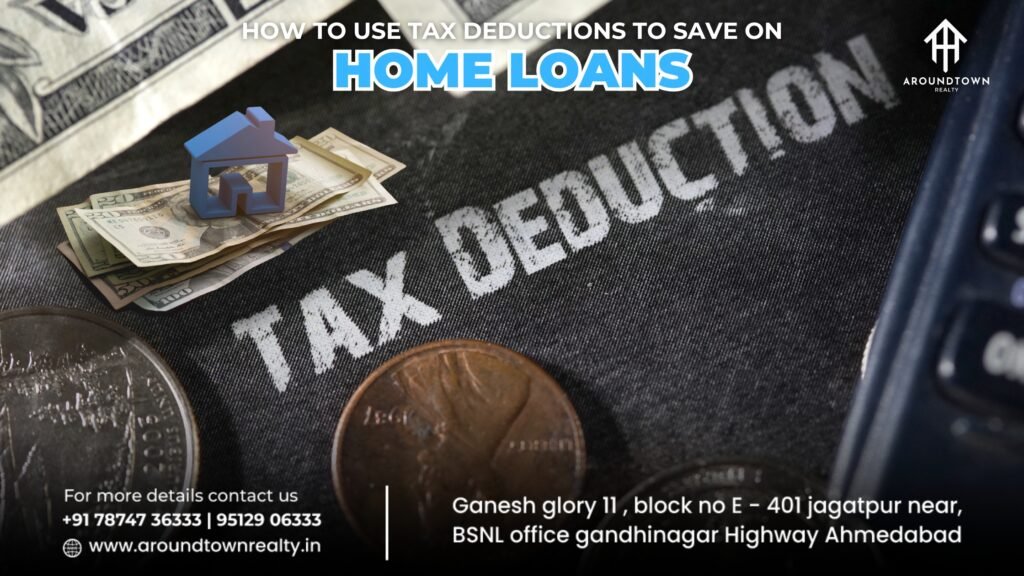If you’re planning to buy a home or already paying off a home loan, you’ve probably wondered how to reduce the financial strain. The good news? You can significantly ease your loan burden through smart tax planning. In India, various sections of the Income Tax Act allow you to use tax deductions to save on home loans, helping you lower your taxable income while building long-term assets.
But to fully benefit from these deductions, you need to know how and when to claim them—and which sections apply to your situation. Whether you’re a first-time buyer, a second-time investor, or jointly buying a property, strategic use of tax deductions can translate into real, consistent savings across years.
In this detailed guide, we break down everything you need to know about how to use tax deductions to save on home loans—from understanding applicable sections like 80C, 24(b), and 80EEA to tips on maximizing your benefits, even with a joint or second property. Let’s get into it.
1. Understanding Home Loan Components
Before jumping into deductions, it’s essential to understand the two primary components of your home loan:
- Principal: The amount you borrow from the bank.
- Interest: The cost you pay to the lender for borrowing that money.
Different tax benefits apply to each of these parts under various sections of the Income Tax Act.
2. Section 80C – Deduction on Principal Repayment
- You can claim up to ₹1.5 lakh per financial year under Section 80C for the principal repayment of your home loan.
- This limit includes other investments like PPF, ELSS, EPF, LIC, etc., so plan accordingly.
- Conditions:
- The house property must not be sold within 5 years of possession.
- The loan must be taken from a recognized financial institution.
3. Section 24(b) – Deduction on Interest Paid
- You can claim up to ₹2 lakh per year on interest paid on a home loan under Section 24(b).
- This applies only if the loan is for a self-occupied property.
- If the property is rented out, there is no upper limit on the interest deduction.
- Conditions:
- The loan must be used for purchase or construction (not renovation).
- Construction must be completed within 5 years of loan disbursement.
4. Section 80EE – Additional Benefit for First-Time Buyers
- If you’re a first-time homebuyer, you can claim an additional ₹50,000 under Section 80EE.
- Eligibility:
- Loan amount should not exceed ₹35 lakh.
- Property value should be under ₹50 lakh.
- The loan should be sanctioned between April 1, 2016, and March 31, 2017.
5. Section 80EEA – A Newer Alternative
- For loans sanctioned between April 1, 2019, and March 31, 2022, buyers can claim an additional ₹1.5 lakh under Section 80EEA, over and above the ₹2 lakh from Section 24(b).
- Conditions:
- The stamp duty value of the property should not exceed ₹45 lakh.
- The individual should not claim deductions under Section 80EE.
6. Joint Home Loans – Double the Tax Benefits
- If you take a joint home loan (e.g., with a spouse or parent), both co-borrowers can claim deductions individually:
- Up to ₹1.5 lakh on principal under 80C.
- Up to ₹2 lakh on interest under 24(b).
- This can double your total deductions as long as both are co-owners and co-borrowers.
READ THIS FOR MORE, Tax Benefits of Buying a Property in Ahmedabad
7. Under-Construction Property – What to Know
- You cannot claim Section 24(b) deduction until the construction is completed.
- However, once construction is completed, you can claim the pre-construction interest (total interest paid during the construction phase) in 5 equal installments over 5 years, along with the regular interest for the year.
8. Second Home – Rules Are Different
- If your second property is rented, you can claim full interest deduction under Section 24(b) without any cap.
- If it’s self-occupied, only one property can be considered self-occupied (you have to choose), and the second will be deemed as let out, allowing full interest deduction—but rental income (notional or actual) must be declared.
9. Key Documents Required
To claim tax deductions, make sure you have:
- Loan certificate from the bank specifying interest and principal paid.
- Possession certificate or occupancy certificate.
- Ownership proof (like sale deed).
- PAN of co-borrowers (if jointly owned).
10. Tips to Maximize Your Tax Benefits
- Plan investments smartly: Align your 80C investments with your home loan repayment.
- File accurately: Always double-check Form 16 and ensure your loan deductions reflect correctly.
- Go joint if possible: If you and your spouse both have income, taking a joint loan can offer double deductions.
- Prepay strategically: Prepaying principal before March 31 can help increase deductions for the same year.
Conclusion: Use Home Loans to Your Advantage
By strategically using tax deductions available under Sections 80C, 24(b), 80EE, and 80EEA, you can lower your taxable income while managing your home loan more efficiently. A little bit of tax planning can go a long way in reducing your financial burden.
If you’re planning to invest in a property in Ahmedabad and want expert help to not just find the right property but also manage the financial and legal side of things, Around Town Realty is your go-to partner. From house-hunting to home loans, our team guides you every step of the way—ensuring you get the most out of your investment.
FAQs: How to Use Tax Deductions on Home Loans
- Can I claim tax benefits on both principal and interest of my home loan?
Yes, principal repayments qualify under Section 80C (up to ₹1.5 lakh) and interest payments under Section 24(b) (up to ₹2 lakh). - What happens if I sell the house before 5 years?
The deductions claimed under Section 80C will be reversed in the year of sale and added back to your taxable income. - Is pre-construction interest deductible?
Yes, it can be claimed in five equal installments starting from the year of possession under Section 24(b). - Can both husband and wife claim home loan tax benefits?
Yes, if they are co-owners and co-borrowers, both can claim individual deductions for principal and interest. - Are there any tax benefits for second-time buyers?
Second-time buyers can still claim interest deduction under Section 24(b), but 80EE and 80EEA are only for first-time buyers.









